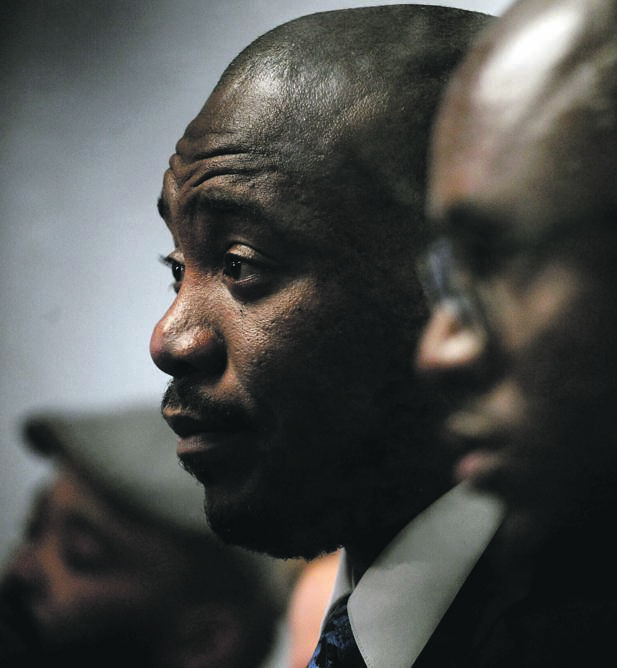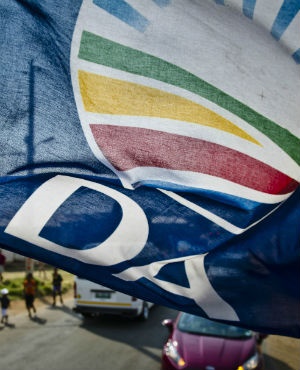
Maimane and other smart blacks had to go to allow the party to return to its classical liberal values and retain power in white hands
The DA experienced a “Black Wednesday” this week, a bedlam in Nkululeko House, in a week during which all the pillars that held the organisation together and gave it legitimacy came crumbling down.
First, DA mayor in Johannesburg, Herman Mashaba, announced his shock resignation and a scathing report of a party that is exactly what the people have always accused it to be – anti-poor, arrogant, frustrating its black leaders, with former leaders seeking back door preferential contracts without due process.
Mashaba’s resignation was hard but still manageable.
The resignations of the party leader Mmusi Maimane and federal chairperson Athol Trollip on Wednesday shifted the tectonic plates and sent tremors across the country of a party that is at the edge of perdition.
With the resignation of John Steenhuisen as chief whip on Thursday and Maimane quitting the party all together, the DA has reached rock bottom, without any idea which way is up.
For people who have followed its history – its breakaway from the United Party, merging with more reformist splinters, vacillating between centre-right and centre-left, again merging with New National Party and Federal Alliance, a partnership of liberals and conservative (the very reason it broke away from the United Party), absorbing Patricia De Lille’s Independent Democrats and ultimately going aggressively after the black vote – the implosion was bound to happen and should not come as a surprise.
The biggest question for the DA has always been how do they continue on a growth path, merging and absorbing other organisations, while keeping their liberal values as the core ideology.
They could explain merging with reformists who also broke away from the United Party later on, but when the party merged with the National Party, a right-wing organisation, it was too much to bear for its core liberal supporters, so that the marriage had to be broken two years later.
Read: Maimane also resigns as parliamentary leader and DA member
Despite the divorce, the DA had unfortunately shown its members that it was willing to sacrifice its liberal values at the altar of political expediency.
If the DA continued its political expediency at the expense of its values, its core liberal members would most likely have no problem abandoning the party were it to sacrifice its DNA for the sake of growth again.
The dichotomy between growth and change on one hand, and keeping the core support and staying liberally pure on the other hand, has been at the centre of the battle for the soul of the DA since 1999 under Tony Leon.
How could the party grow its membership beyond its middle class English voters into the majority black voters without sacrificing liberalism?
Leon found a way to escape this dichotomy, which Helen Zille would perfect later. Leon seemed to have concluded that the biggest challenge for the DA – at least going into the 2004 elections – was how the DA was perceived with regard to race, and less with regard to ideology.
This meant that if the DA could solve the fundamental problem of its racial make-up, it could solve its problem of growth without sacrificing its liberal values.
Leon then decided that in the 2004 party list of the DA, more black faces needed to be on that list.
His simplistic thinking was that as soon as black people saw other blacks in the DA, they would vote for the party and become members without asking more fundamental question of ideology.
This did not seem to succeed much and the DA knew that it needed to articulate some version of its ideology, otherwise it would have no message for its campaigns.
Loosely defined slogans such as “Open opportunity society for all”, and “One party for all”, seemed to be the best compromise as a message that they could present to South Africa and would hopefully be accepted by both core liberals and the new black members.
Although all other parties were in fact for all South Africans (except Andile Mngxitama’s recent Black First Land First), the DA message depended on the racist tradition where integration is defined as a one-way street, blacks assimilating to whites.
The DA was also perceived as governing well compared to the ANC and this also helped them integrate better with the black middle class which was disillusioned with an ANC that was now perceived in the opposite fashion.
It was however inevitable that once the ANC turned the corner on governance, corruption and other negative perceptions and tendencies, this would take away all the distinguishing factors that had attracted blacks to the DA as an alternative and the conversation of what exactly the party stood for would ensue.
Maimane, as leader of the party began to publicly claim that he was a liberal.
What that meant he did not seem to comprehend very well, especially when he would then espouse interventionist redistribute and anti-inequality policies of an activist government, the antithesis to liberalism.
Another DA leader, Phumzile van Damme, sought to qualify her ideology by saying she in fact was also a liberal, but a social liberal, as opposed to classical liberal.
Thus began the confusion of both ideology and policy in the DA.
What did the DA think of affirmative action, BEE, executive pay and the death penalty? With answers pitting black leaders on one side and white leaders on the other, divisions widened.
Read: Double whammy for DA as Maimane and Trollip resign
British writer George Monbiot summed up liberalism when he said: “Never mind structural unemployment: if you don’t have a job it’s because you are unenterprising. Never mind the impossible costs of housing: if your credit card is maxed out, you’re feckless and improvident. Never mind that your children no longer have a school playing field: if they get fat, it’s your fault. In a world governed by competition, those who fall behind become defined and self-defined as losers. Neoliberalism can be summed up as an ideology of massive corporate tax cuts, the crushing of trade unions, deregulation, privatisation, outsourcing and competition in public services. That’s about the size of it.”
Presented this way, no black person in their right mind would ever vote for a liberal party.
That was however not a question the DA was willing to engage in 2004 when Leon launched his party list in 2004 and in 2007, when Zille took over.
The goal was to use the available tools to allow the DA to change its racial perception, through imposing black party leaders, while keeping its liberal ideology.
Giving blacks leadership positions, who in all likelihood could never be classical liberals, while keeping the party power in the hands of the white liberals was not a very sustainable strategy but would suffice at the time.
There was only one way to achieve this black leader-liberal ideology goal: federalism.
“Federalism, by form and content, refers to a system in which there is constitutionally established sharing of authority between different layers of leadership. Not managed well, there will always be a crippling tension between the sprawling bureaucracy of the federal executive and the party’s government apparatus. Federalism is usually more than just a preferred model of government but more often than not is as a result of pressures from minority nationalism.”
If the party wanted to be black-led while power remained with white liberals, it would have to make sure the federal structure, or at least it’s chairperson, was white and it’s not open to too much contestation (so it should not go to congress) and the federal structure would have to be presented as the background structure which exists only to support the leader.
Smart black leaders however, who could see through the facade began to rebel, against this imposed white liberalism via federalism.
In fact, this was racism, where whites still thought of themselves as superior to blacks to ever allow blacks to truly lead, despite desperately needing the black votes.
Black leaders themselves would have to be conscientised, on a daily basis, just how generous whites had been for giving them leadership positions in a white party, how superior white leaders’ ideas are to black leaders and that they should never forget to be grateful.
Lindiwe Mazibuko, it’s former parliamentary leader, would be the first high-profile black leader to be a casualty of black leaders who actually thought they could lead and call the shots.
In January 2016, now outside the DA, Mazibuko wrote a scathing piece on the racial dynamics in her former party.
In one of the comments she said: “The DA should also reflect on hurtful and inaccurate internal party narratives that presume ‘white competence’, while labelling black leaders products of the generosity of their white counterparts.”
The DA core liberal members and funders tolerated Leon’s experimental leadership as long as it brought growth and did not veer away from liberal values.
They did the same with Zille.
What they could not tolerate was veering away from liberal values and still losing electoral support – that was too much.
At its federal council, the party had a choice, to either return to its classical liberal values with a new leader, or continue with Maimane, whose rhetoric did not espouse liberal values and was also losing the DA electoral support.
The choice of Zille as federal council chairperson meant that the party decided to return to its classical liberal values, that would not address race, inequality, injustices of the past, BEE and other social policies, leaving Maimane with no other choice but to resign.
This should be a lesson to all black leaders in the DA.
Diko is media strategist and political commentator
 | ||||||||||||||||||||||||||
Get in touchCity Press | ||||||||||||||||||||||||||
| ||||||||||||||||||||||||||
| Rise above the clutter | Choose your news | City Press in your inbox | ||||||||||||||||||||||||||
| City Press is an agenda-setting South African news brand that publishes across platforms. Its flagship print edition is distributed on a Sunday. |




 Publications
Publications
 Partners
Partners









